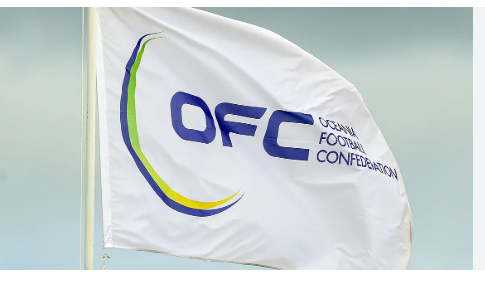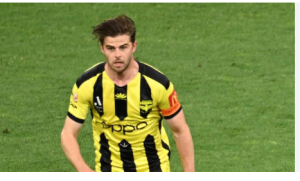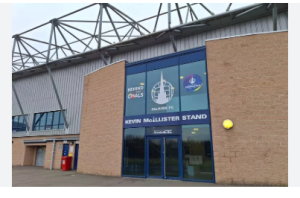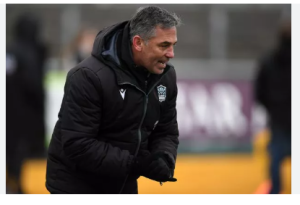
Wellington Phoenix and Auckland FC will both compete for a spot in the brand-new Oceania Professional League, which supporters believe could revolutionize football in the area.
With millions of euros from FIFA supporting it, the massive project is scheduled to begin in January of next year and last through May.
Eight clubs will participate, including one invited team from Australia and seven from Oceania. Two clubs from New Zealand are anticipated to join, while a team from Hawaii may join in the future.
In a briefing , where details of the format, the draw and criteria for entry were outlined, Oceania Football Confederation general secretary Franck Castillo described the OFC Pro League as a “revolution” for the sport.
OFC will invest US$40 million ($70m) over the next four years, which covers all airfares and accommodation for the competing clubs, aside from the Australian entry given they are not part of the confederation.
There is one carrot above all others, aside from providing professional chances for coaches and players throughout Oceania and promoting standards improvement.
The regional league winner will be eligible to compete in Fifa’s club tournaments, such as the upcoming quadrennial Club World Cup, which is expected to have enormous prize money, and the yearly Fifa Intercontinental Cup.
Since Auckland FC and Wellington Phoenix do not currently have access to such FIFA competitions, that is a big incentive for any potential clubs.
The Black Knights are a New Zealand-based team, thus even if they win the A-League this season, they won’t be able to qualify for the Asian Champions League, which is typically reserved for A-League champions.
Both A-League clubs have been part of meetings over the previous six months, along with teams from around the country competing at regional or national league level.
Auckland FC CEO Nick Becker told our Pundit, “We would like to learn more about it and be involved in it.”
Phoenix general manager David Dome had a similar view.
“We want to be in those discussions,” Dome said. “We are keen to be part of that conversation…if we can make it work.”
How it will work is the biggest question, given their existing A-League commitments. There would be a need for a significant number of players, coaches and staff, though there would be some crossover. As an example, it is expected that players who have played more than seven A-League games in a particular season won’t be eligible to feature in the Pro League.
“There will be some kind of restrictions,” Castillo confirmed.
There has been a lot of domestic speculation about the search for seats. Some of the top teams at the next rung of the pyramid, including as Wellington Olympic, Christchurch United, and Auckland City, view this as their next move and question if the A-League teams should be permitted to “double dip.”
Stuart Larman, general manager of the OFC Pro League, is open-minded.
“We want clubs that are as strong as possible,” Larman told the Herald. “However, any participating clubs must contribute value and support the competition’s ideals, which include promoting football in the area.”
Larman said organisers would be wary of competitive balance, especially in the first two seasons.
Twelve New Zealand clubs attended the latest workshop two weeks ago and OFC expect at least four applications from this country.

It’s a rigorous process. Prospective teams have more than 150 documents to submit and are assessed across 40 different criteria, with the final decisions made by an independent panel. Competition licences, which will be valid for four years, will be issued to successful clubs in September.
The league will run a circuit series model, loosely based on rugby sevens. There will be rounds across five cities in the Pacific before semifinals and a final, with each team guaranteed a minimum of 17 games.
Squads will have 20-23 players, with no more than six non-domestic players and a maximum of three from outside Oceania.
Castillo hopes the league can be a gamechanger for the region, offering pathways for players – particularly in the Islands – where previously there has been virtually none. He also expects national teams around the region to get stronger and compete with the All Whites for the new automatic qualifying spot into the Fifa World Cup.
It will also drive investment, both from governments and private backers. It’s understood there has already been interest from a European club – in a big footballing nation – in one of the new island clubs. It could also be complementary to a multi-club model.
The Pro League has been Castillo’s prized project since 2018, when the idea was conceived after discussions with OFC president Lambert Matlock. Castillo acknowledges the massive challenges – particularly around logistics, travel and lack of infrastructure – but is adamant it will work.
“We know the challenges,” Castillo said. “They are big in this region. Even New Zealand doesn’t have capacity to have a professional league. But we have no choice.
We must raise the bar because this is the only way to improve football; else, Oceania won’t be important. We consider it a duty. Furthermore, it is a waste that they aren’t given opportunities given the potential in the area.






